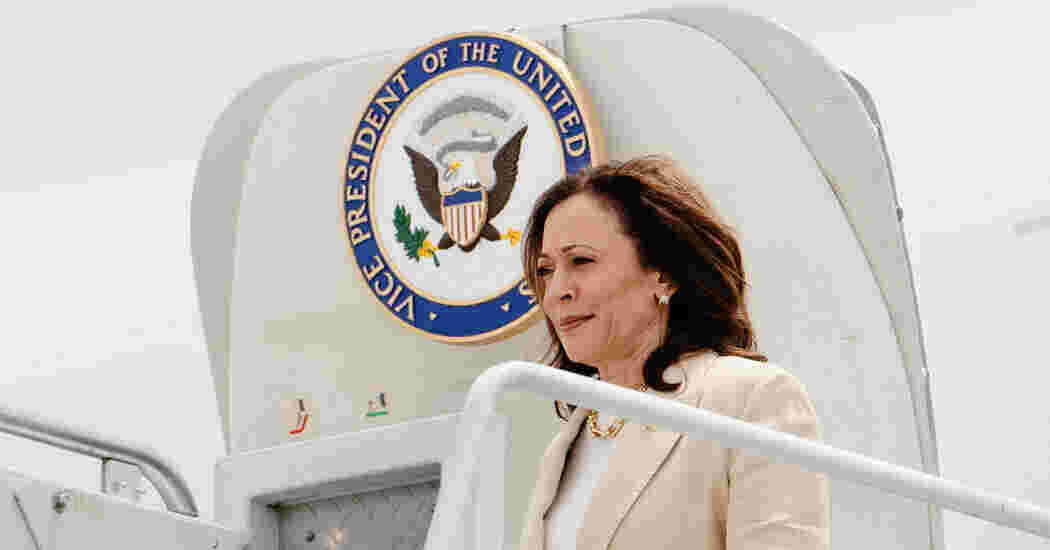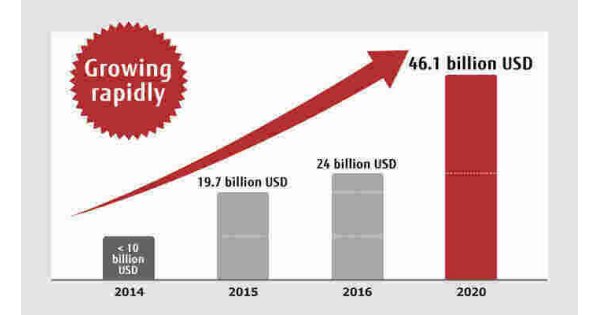Kamala Harris Rapidly Picks Up Democratic Support as 2024 Race is Reborn.
Endorsements cascaded in as the vice president took swift control of the Biden campaign in a transformed contest, though Democrats, including Barack Obama, did not immediately back her.
Powerful leaders of the Democratic establishment quickly embraced Vice President Kamala Harris on Sunday after President Biden's shocking exit from the race, hoping that a seamless succession could end a month of damaging chaos and transform a contest widely believed to be tipping toward Republicans.
By Sunday evening, Ms. Harris appeared to have a glide path to the nomination: No other top Democrats announced plans to challenge her, though some stopped short of an endorsement, including the party's top congressional leaders and former President Barack Obama.
With breathtaking speed, she took control of Mr. Biden's enormous political operation and contacted Democratic leaders in Congress and state houses to ask for their support. The Biden campaign formally renamed itself "Harris for President," giving her immediate access to an account that had $96 million in cash at the end of June. On an internal call, the Biden campaign's leaders told staff members that they would now work for Ms. Harris.
"I will do everything in my power to unite the Democratic Party—and unite our nation—to defeat Donald Trump and his extreme Project 2025 agenda," Ms. Harris said in a statement. "We have 107 days until Election Day. Together, we will fight. And together, we will win."
The rapid turn of events plunged the party and the nation into unfamiliar political territory, giving unelected Democratic officials the final say over the party's nominee. Complicated decisions loom. Ms. Harris must choose a running mate, take charge of the campaign with little time before early voting begins in some states in September, rebuild support among voters who had fled Mr. Biden, and prepare to withstand a full-blown Republican assault.
Speculation immediately turned to her potential running mate, with many Democrats privately arguing that Ms. Harris should pick a white man to widen her appeal and provide demographic balance to the ticket. A flotilla of governors—including Roy Cooper of North Carolina, Andy Beshear of Kentucky, Josh Shapiro of Pennsylvania, and Tim Walz of Minnesota—as well as Senator Mark Kelly of Arizona, have been frequently mentioned by donors, officials, and other lawmakers.
Mr. Biden endorsed Ms. Harris within minutes on Sunday afternoon. Before she had uttered a word about her intentions, he was swiftly followed by other party leaders, including Bill and Hillary Clinton, key Democratic senators, and influential House members. By the evening, Mr. Shapiro had publicly backed Ms. Harris after a phone call from her. She also picked up endorsements from Gov. Gavin Newsom of California, Mr. Cooper, and Mr. Kelly.
Not all Democrats were pushing for a coronation. Neither Senator Chuck Schumer, the majority leader, nor Representative Hakeem Jeffries, the minority House leader, backed her, nor did Representative Nancy Pelosi, the former speaker who wields considerable power. Mr. Obama appeared to call for a more competitive nominating process.
"We will be navigating uncharted waters in the days ahead," he said. "But I have extraordinary confidence that the leaders of our party will be able to create a process from which an outstanding nominee emerges."
Privately, some Democrats argued that a more competitive process would benefit Ms. Harris because it could dispel doubts about her political skills. Some also said it could counter perceptions that the party was making decisions for the country in today's equivalent of a smoke-filled room. Ms. Harris said on Sunday that she intended "to earn and win this nomination."
The party's quick embrace of Ms. Harris poured a dash of cold water on the idea that some other challenger would emerge. Any Democratic rival would face a steep climb to match her political support, money, and other resources. Such a bid could also hurt the candidate's future prospects, particularly among Black women, who are some of the party's most reliable voters.
Many Democrats felt a palpable sense of enthusiasm and relief. They now see an opportunity to recover from nearly a month of internal battles and a race that seemed headed for catastrophic defeats from the White House all the way down to statehouse races.
"Democrats have a choice to make: unite and win, or fight each other and lose," said Mayor Randall L. Woodfin of Birmingham, Ala., urging his party to embrace Ms. Harris. Mr. Woodfin, who had been a strong supporter of Mr. Biden's, said Democrats now had "a chance to have a younger ticket that pulls in more younger voters, enthusiasm, energy, and excitement."
While Ms. Harris injected enthusiasm into the Democratic grass-roots—the party raised a staggering $50 million online on Sunday—it remains uncertain how the country will respond to her campaign. She is a Black woman from California, a liberal stronghold, and her bid will inevitably test the country's appetite for a historic first.
In 2020, Democratic primary voters rallied around Mr. Biden because he appeared to be the safest choice against Mr. Trump. Now, after Mr. Biden's disastrous debate performance, the party appears ready to embrace a candidate many still believe could face significant headwinds.
An analysis of recent polling found that Ms. Harris trailed Mr. Trump by a slim margin in top battleground states, though she outperformed Mr. Biden among Black voters, younger voters, and women.
But the nomination of Ms. Harris, 59, would also introduce complications for Mr. Trump, 78, forcing him to run against a candidate who is decades younger than him, more energetic than Mr. Biden, and more skilled at wielding Democrats' best political issue, abortion rights.
Mr. Trump has also previously supported her: He made two donations worth $6,000 in total to her bids for California attorney general in 2011 and 2013.
A cascade of Democrats in competitive states issued statements of support on Sunday.
Senator Tammy Baldwin of Wisconsin, a Democrat who did not appear with Mr. Biden when he was recently in the state, offered her backing. So did Senator Jon Ossoff of Georgia, as well as Senator Mark Warner of Virginia, who represents a state that senior Biden campaign staff members had grown increasingly worried about. Senator Martin Heinrich of New Mexico, the third Senate Democrat to urge Mr. Biden to step down, said he would also support Ms. Harris.
Ms. Harris also made some early strides toward capturing the support of party delegates who will select the nominee. Democratic National Committee delegates from North Carolina, South Carolina, and Tennessee voted to endorse Ms. Harris—the first state delegations to formally back her.
Former Representative Brenda Lawrence, a Michigan Democrat, said that the concerns voters raised about Mr. Biden often had to do with his age rather than his policies.
"Now we have a younger person with another old man—that's Trump," she said. "I'm excited about this race, and I'm very optimistic about us turning this around and making history."
Several big Democratic groups also backed Ms. Harris, including Emily's List, which supports Democratic candidates who back abortion rights. The group has fiercely defended Ms. Harris and has for months used polls to test messaging about her political strengths and weaknesses. The American Federation of Teachers, a major labor union, also moved to support Ms. Harris.
But even before Mr. Biden bowed out, fault lines were emerging within the party over how to proceed if he stepped aside. A number of Democrats, including Senator Jon Tester of Montana, who faces a challenging re-election, had indicated that they wanted a competitive nominating process. On Sunday, several Democrats in tough races issued statements about Mr. Biden but made no mention of who should succeed him.
The debate may be functionally moot. If no one challenges Ms. Harris, her nomination may proceed fairly smoothly.
She now must appeal to the more than 4,6000 delegates to the Democratic National Convention, a group made up of party officials, lawmakers, local activists, and volunteers.
Party officials plan to hold a virtual vote to choose a nominee before delegates converge on Chicago for the national convention on Aug. 19. Deadlines to qualify for the ballot in California and Washington State fall that week, and Democratic officials would prefer to have a nominee in place before then to avoid any legal risk.
Rules and timing for the vote will be determined by Mr. Walz, the Minnesota governor, and Leah Daughtry, a longtime party official who leads the convention's rules committee.
Almost immediately, Ms. Harris faced attacks from Republicans, who argued that she had helped conceal Mr. Biden's diminished abilities and that she was responsible for the administration's actions. Trump campaign officials, who are researching her record as a prosecutor, also plan to attack her as weak on crime and the border.
An hour after Mr. Biden withdrew, the leading pro-Trump super PAC, Make America Great Again, unveiled an anti-Harris ad that would begin running as soon as possible in three battleground states—Arizona, Georgia, and Pennsylvania—as part of a $5 million reservation.
"Kamala was in on it," the ad's narrator says. "She covered up Joe's obvious mental decline."
After weeks frozen by intraparty infighting, Democrats were eager to steer the race back to a referendum on Mr. Trump—rather than their own ticket.
"It's game on for us," said Bradley Beychok, a co-founder of American Bridge, a major Democratic group. "We're an anti-Trump super PAC, and we're going to war."
Kamala Harris Rapidly Picks Up Democratic Support as 2024 Race Is Reborn
Endorsements cascaded in as the vice president took swift control of the Biden campaign in a transformed contest, though Democrats including Barack Obama did not immediately back her.



